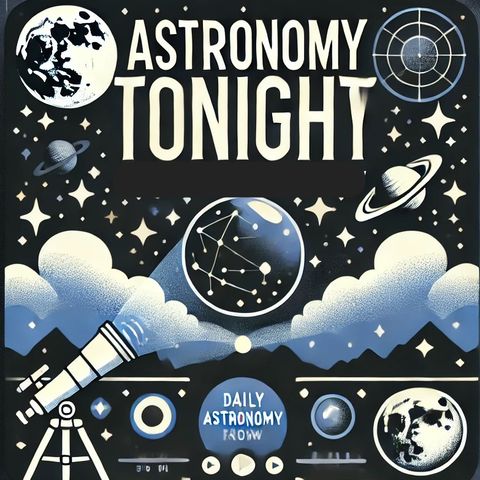Astronomy Tonight for - 09-26-2024

Download and listen anywhere
Download your favorite episodes and enjoy them, wherever you are! Sign up or log in now to access offline listening.
Astronomy Tonight for - 09-26-2024
This is an automatically generated transcript. Please note that complete accuracy is not guaranteed.
Description
On September 26, 1962, a momentous event took place that would forever change our understanding of the cosmos. On this date, the Arecibo Observatory in Puerto Rico was officially opened,...
show morePicture this: a massive, 1,000-foot-wide (305 meters) dish nestled in the lush green hills of Puerto Rico, pointing towards the heavens like a gigantic ear eagerly listening for whispers from the universe. The Arecibo telescope was an engineering marvel, capable of collecting faint radio signals from the depths of space.
Throughout its illustrious 57-year career, the Arecibo telescope made numerous groundbreaking discoveries. It played a crucial role in the discovery of the first binary pulsar, which later earned its discoverers the Nobel Prize in Physics. This extraordinary finding provided a cosmic laboratory to test Einstein's theory of general relativity and opened up a whole new field of study.
The telescope also famously broadcast the "Arecibo Message" in 1974, a powerful radio signal sent towards the globular star cluster M13, carrying basic information about humanity and Earth's location. This ambitious attempt to communicate with potential extraterrestrial civilizations showcased the telescope's capabilities and our desire to reach out to the stars.
Sadly, the Arecibo telescope met a dramatic end in December 2020 when its instrument platform collapsed, causing irreparable damage to the iconic dish. The scientific community mourned the loss of this beloved astronomical tool, which had been a symbol of human curiosity and the thirst for cosmic knowledge for over half a century.
So, on this day, September 26, we commemorate the opening of the Arecibo Observatory and celebrate the countless discoveries and advancements in astronomy it made possible. Although the telescope itself is no more, its legacy lives on, inspiring future generations of astronomers to continue exploring the wonders of the universe.
Information
| Author | QP-4 |
| Organization | William Corbin |
| Website | - |
| Tags |
Copyright 2024 - Spreaker Inc. an iHeartMedia Company
